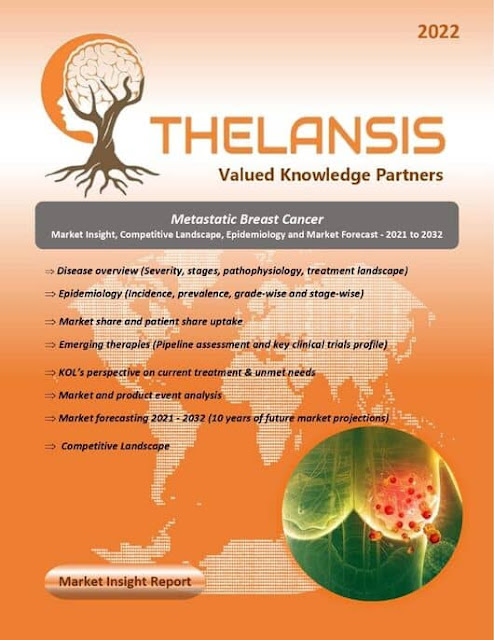Metastatic Breast Cancer – Market Outlook, Epidemiology, Competitive Landscape, and Market Forecast Report – 2023 To 2033

Breast cancer, particularly hormone receptor-positive (HR+) and HER2-negative (HER2-) subtypes, stands as the predominant malignancy affecting young women globally, constituting roughly 30% of new cancer diagnoses and accounting for 25% of cancer-related deaths. The prognosis and clinical trajectory of metastatic breast cancer patients are highly variable, influenced by diverse factors, including patient characteristics such as age and existing health conditions, as well as tumor attributes like hormone receptor status, tumor grade, and site of metastasis. Although the median survival period for metastatic breast cancer is typically 2-4 years, specific subgroups may experience extended survival, particularly those with less aggressive or localized metastatic disease. Initial diagnosis reveals metastatic spread in about 6%-10% of cases. Despite advancements in treatment strategies for metastatic breast cancer, the impact on overall survival remains modest. Presently, metastatic bre...
